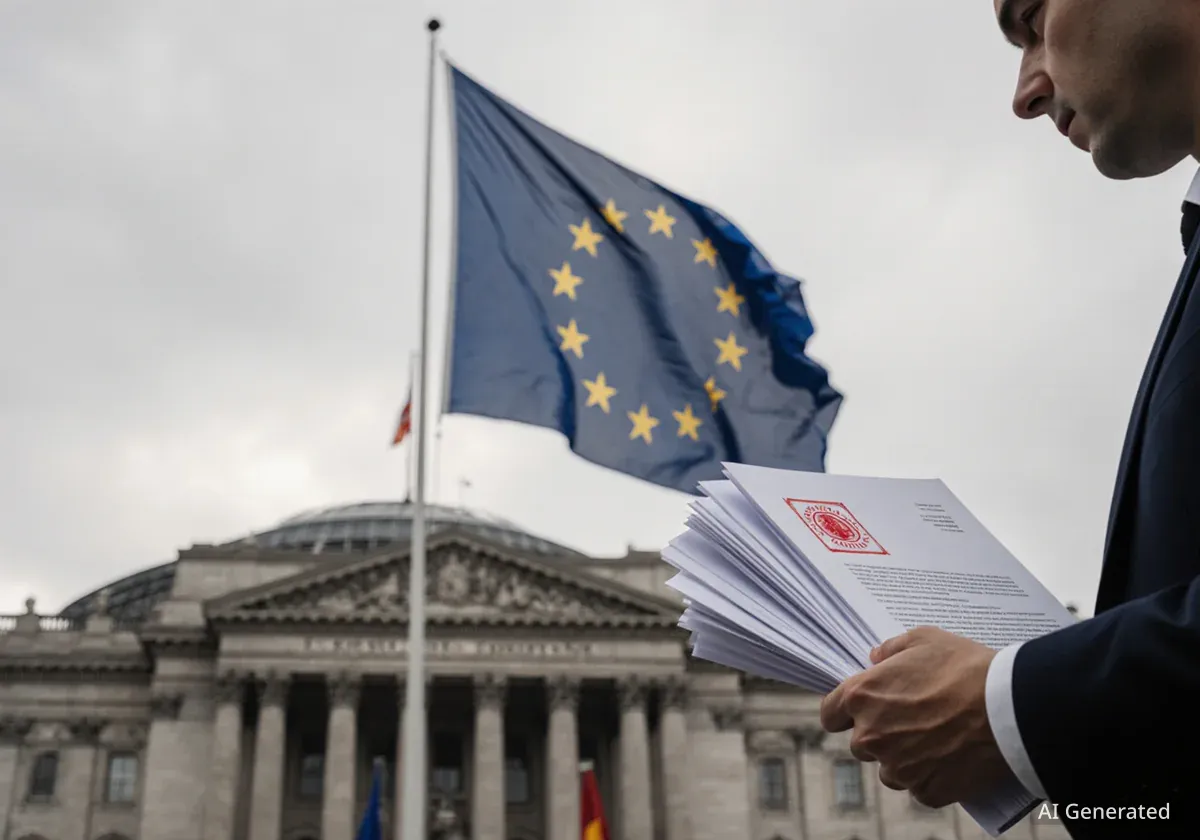Switzerland's primary gambling regulator, Gespa, has filed a criminal complaint against the Fédération Internationale de Football Association (FIFA) over its blockchain-based NFT platform. The authority alleges that collect.fifa.com offers unauthorized gambling activities, a violation of Swiss law.
The complaint was lodged with the appropriate criminal prosecution authorities after an investigation by Gespa found evidence suggesting that several features on the platform function as illegal lotteries and sports betting operations.
Key Takeaways
- Gespa, the Swiss Inter-Cantonal Gambling Authority, has filed a criminal complaint against FIFA's NFT platform.
- The platform, collect.fifa.com, is suspected of offering unauthorized lotteries and sports betting in Switzerland.
- Under Swiss law, games of chance that require payment and offer monetary prizes must be licensed by Gespa.
- The complaint highlights the growing regulatory scrutiny of NFT and blockchain-based gaming platforms globally.
Gespa Initiates Legal Action
The Swiss Inter-Cantonal Gambling Authority (Gespa) confirmed on October 17, 2025, that it has formally requested law enforcement to investigate FIFA's digital collectibles platform. According to a statement from the regulator, this action is a legal obligation when it becomes aware of potential breaches of the Swiss Gambling Act.
Gespa's investigation into collect.fifa.com began in early October 2025. The authority's preliminary findings solidified suspicions that the platform was providing games of chance to Swiss residents without the required license. This prompted the escalation to a formal criminal complaint.
Who is Gespa?
Gespa is the regulatory body responsible for licensing and supervising large-scale gambling operations in Switzerland, such as lotteries, sports betting, and skill-based money games. Its mandate includes ensuring player protection, preventing fraud, and combating illegal gambling activities within the country.
The Nature of the Allegations
The core of Gespa's complaint centers on specific activities offered on the FIFA platform. These activities, referred to as "Drops" and "Challenges," involve users purchasing digital collectibles known as Non-Fungible Tokens (NFTs).
Gespa's analysis concluded that these offerings meet the legal definition of gambling. Participation requires a payment or a stake of monetary value. In return, participants have the chance to win prizes that also have monetary value. Crucially, the outcome of whether a participant wins is determined by chance-based mechanisms, such as random draws.
Defining Illegal Gambling in Switzerland
Under the Swiss Gambling Act, any game that combines these three elements—a stake, a chance-based outcome, and a prize of monetary value—is classified as a game of chance. Such games can only be legally offered in Switzerland with a license from Gespa or the Swiss Federal Gaming Board (ESBK), depending on the type of game.
Gespa has specifically classified some of the platform's offerings as lotteries, while others, like the "Right to Final" challenge, are considered a form of sports betting. FIFA does not hold the necessary licenses to operate either type of game in Switzerland.
"If we become aware of violations of the Swiss Gambling Act, we are obliged to notify the responsible law enforcement authorities," a Gespa spokesperson would typically state in such circumstances, emphasizing their regulatory duty.
The Rise of NFT-Based Gaming and Regulatory Challenges
The case against FIFA's platform is part of a broader global trend where regulators are examining the intersection of blockchain technology, NFTs, and online gaming. Many platforms operate in a legal gray area, but authorities are increasingly applying existing gambling laws to these new digital formats.
NFTs, which are unique digital assets verified on a blockchain, have become popular as collectibles. However, when they are integrated into systems with chance-based rewards and entry fees, they attract regulatory attention.
What is an NFT?
A Non-Fungible Token (NFT) is a unique digital identifier that cannot be copied, substituted, or subdivided, that is recorded in a blockchain, and that is used to certify authenticity and ownership. In this case, they represent digital sports memorabilia.
Regulators worldwide are concerned about several aspects of NFT-based gaming:
- Player Protection: Unregulated platforms may lack measures to protect vulnerable players or prevent underage gambling.
- Financial Risk: The value of NFTs can be highly volatile, and the chance-based mechanisms can lead to significant financial losses for consumers.
- Lack of Transparency: The algorithms determining winners in unregulated games may not be fair or transparent.
Implications for FIFA and the NFT Market
The criminal complaint in Switzerland could have significant consequences for FIFA and its digital strategy. If the platform is found to be in violation of Swiss law, the organization could face fines and be ordered to block access to the platform for users in Switzerland. The country is notably FIFA's home base, with its headquarters located in Zurich.
This legal challenge may also serve as a precedent, potentially inspiring other national regulators to scrutinize similar NFT platforms. For the broader digital collectibles market, it underscores the importance of legal compliance and the need for platform operators to understand and adhere to local gambling regulations.
The outcome of the criminal proceedings will be closely watched by the sports, gaming, and cryptocurrency industries. It will provide greater clarity on how traditional gambling laws are applied to innovative, blockchain-based entertainment products. As of now, FIFA has not publicly responded to the complaint filed by Gespa. The investigation by Swiss law enforcement authorities is ongoing.




